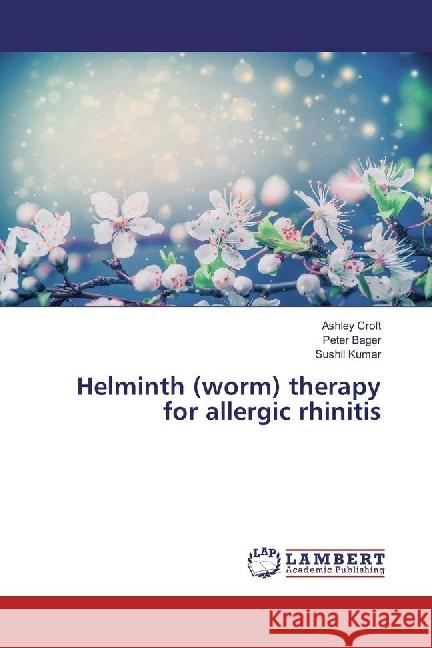Helminth (worm) therapy for allergic rhinitis » książka
Helminth (worm) therapy for allergic rhinitis
ISBN-13: 9783330319516 / Angielski / Miękka / 2017 / 64 str.
Allergic rhinitis, popularly known as 'hay fever', is a common health problem worldwide. Various drugs are used to treat allergic rhinitis, but they may be ineffective or expensive, or have side effects. Helminths are complex multicellular organisms that inhabit larger organisms, and in humans are often symptomless. Helminths modulate (that is, optimally adjust) their hosts' immune systems and it is thought that this property of helminths could be used therapeutically, to prevent or treat allergic diseases, such as allergic rhinitis. In this systematic review we included data from two well-designed studies with a total of 130 adult participants, each study using a different gastrointestinal helminth species (human hookworm in one study and pig whipworm in the other) as the intervention. Both studies found no significant efficacy from helminths, although one helminth species (Trichuris suis, the pig whipworm) reduced the need for participants to take tablets as 'rescue medication' during the grass pollen season. Adverse events such as abdominal pain and flatulence were commoner in the helminth group, but the two helminths species studied did not cause serious adverse reactions.











